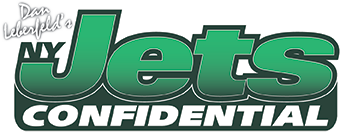Content available exclusively for subscribers
It’s no secret that corporate media is dying.
Unfortunately, layoffs all over the place, with the Los Angeles Times providing the latest bloodbath.
So what the Athletic is doing is clearly a strategy to help them survive.
For those not aware, the Athletic, a sports website owned by the New York Times, published a story today, with 30 sources, not painting the Jets organization in a very good light.
It paints them as kind of dysfunctional.
Will get into some of the details in the coming days and respond to the allegations, but today, I want to take a 30,000-foot view about how stories like this happen.
The 30-source thing is flat-out remarkable. As I have said many times, it’s hard to get one source. 30? Wow.
Whether you believe they had 30 sources or not, how do you verify it one way or another? I’m not saying any of the sources are made up in this story. that would be presumptuous of me. But I have felt over the years, that some writers made up sources, and there is no way to check on a writer’s sources, so if somebody is lacking in the ethics department, you can write stuff quoting made-up people.
I’m not saying that is the case with this story, but I’m telling you it happens.
But based on some of the stuff in this Athletic story, they clearly had very good sources, like the thing about Robert Saleh praising Zach Wilson publicly, but being critical behind the scenes. Totally buy that.
Generally sources for these kinds of stories fall into three categories – agents, disgruntled players and executives/coaches looking for career advancement.
The agent part doesn’t need to be explained. That has been going on forever. As for disgruntled players, let’s say a player is the yappy sort, and got benched or doesn’t like his role, that kind of player often turns into a source. And the executive/coach looking for career advancement will leak stuff to insiders, and then the insiders, in return, will write glowing stuff about them, like they are a “hot candidate” for a GM or head coaching job. Quid pro quo stuff.
Obviously there are other source types, but those are the big three.
But it’s really risky to do this stuff, because if they suspect you are one of the leaks, you could be out of work.
I know for a fact that Bill Parcells once put out a fake transaction to his staff to see if a suspected leaker would give it to one of his favorite reporters, and it happened. The executive wasn’t there much longer.
The Jets have an awesome security chief named Bobby Mastroddi. He used to be the security chief for former New York Governor George Pataki. I always joke that “Bobby knows more about me than I know about myself.” There are going to be people losing jobs based on some of these leaks. Bobby is good at getting to the bottom of things.
But getting back to the Athletic, I totally get what they are doing, as they try to survive.
They have a paywall site. You are not going to get people to subscribe for stories about how good the Jets pass rush is, or how good the Giants linebackers are. That doesn’t sell subscriptions. But blockbuster stories like this, will get people to pay for premium content. It’s no coincidence this week that the Athletic hired New York Post sports media columnist Andrew Marchand, who breaks a ton of stories on sports TV and radio stuff.
They also hired NFL insider Dianna Russini a few months ago, who co-authored this Jets story with 30 sources.
To sell subscriptions, they are going to need stories like the one today about the Jets.
And the people who run the Athletic clearly know that, so expect more stories like this from them across the sports landscape.
January 31, 2023
Premium will return by 9:30 pm on Thursday




